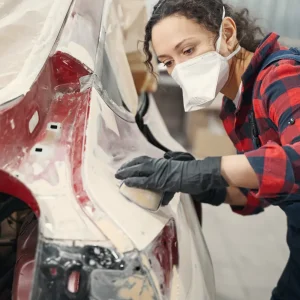Kwik-fit’s new owners have implemented a massive investment plan after being shocked to find customers likened a trip to a fast-fit to visiting the dentist. Paul Barker reports
When Kwik-Fit was bought by the Itochu Corporation in March 2011, it was the firm’s fifth owner in 12 years.
But if the Japanese industrial giant is to be believed, that’s the end of passing the UK’s largest fast-fit operation from one owner to another, at least for the foreseeable future, because the company that replaced venture capitalist bosses is planning for growth through a huge investment in the 800 Kwik-Fit and fellow Itochu-owned Stapleton’s Tyre Services centres across the UK.
“As a business we’ve changed a lot – we’re a new company now with new management and a new philosophy,” says Kwik-Fit managing director Kenji Murai. “It’s our intention to hold the Kwik-Fit brand for the long-term basis and invest in it.”
That investment is primarily in transforming the 800 sites at a rate of 100 per year after Murai found that UK drivers placed spending time in fast-fit premises at the same level as going to the dentists.
New premises will have comfy waiting rooms, free wi-fi and tea and coffee facilities, and the old desks and counters are to be replaced by screens where staff can sit beside customers to explain what needs to be done.
The revamp is an essential part of the attempt to take more MoT servicing and mechanical business from main dealers or other independents.
“Number one priority is to invest in our current centres – in the past 10 years there has been no investment so we need to modernise,” says Murai.
Kwik-Fit Fleet sales director Peter Lambert adds:?”With the Kwik-Fit of old, the centres were a bit tatty and it wasn’t the sort of place you wanted to take your car to be serviced.
“The key to us being able to grow the business is to gain the confidence of the contract hire and leasing company and the fleet manager.”
Lambert says the company has good coverage of the tyre market across business car fleets, but mechanical work is where he sees opportunities. “SMR is a big opportunity, and historically one of the biggest factors restricting us is the confidence of the contract hire and leasing company and the fleet manager,” he says, pointing to the site refurbishments as an attempt to make Kwik-Fit more appealing compared with main dealers (but with the cost savings) and more appealing than independents charging similar prices for servicing or brake replacement work.
“We’re giving confidence – the investment in bricks and mortar helps, and the quality of business and attitude of staff in the business is changing,” he says. “We’re not going to improve overnight but you can see the change in image the industry has of Kwik-Fit as more and more of the old centres are replaced. “
Kwik-Fit is also looking for a big increase in its take of the LCV market. “We want to communicate to the marketplace that we’re as good on vans as we are on cars,” says Lambert.
“Vans have always been something we’re capable of doing but the outside world was not aware of it,” agrees Kwik-Fit Fleet corporate and national sales director Martin Towers. “We’ve now gone out to the market and made sure customers know what we can do, how and where.” He said the company had in the past suffered because some smaller sites aren’t capable of handling LCVs, planting the perception that Kwik-Fit can’t necessarily service vans.
“With LCVs we were losing a lot of business to ATS – we had to sub-contract because we couldn’t fulfill certain elements,” says Neil Kidd, Kwik-Fit Fleet’s UK business development manager for SMR and MoT. “We’ve trimmed the number of LCV dealers and taken the ones out that couldn’t do it. Because the whole network was contracted we had van drivers turning up at any centre and wanting tyres, and it was feeding back that it couldn’t be done in some places.”
He says there is now an official accreditation scheme for Kwik-Fit sites, showing they are set up, equipped and trained to handle LCV customers.
The development and investment won’t stop there, with Kidd revealing Itochu bosses are even asking for 25-year plans for taking the business forward. After more than a decade of under-investment and changes of ownership, the long-term future now seems more settled, and service to customers should improve as a result.
“Fleet customer demands are at quite a high level, their requirements are high, and to meet those the investment is high too,” says Murai. “Our strategy’s simple: make it better, and the keyword is quality.”





